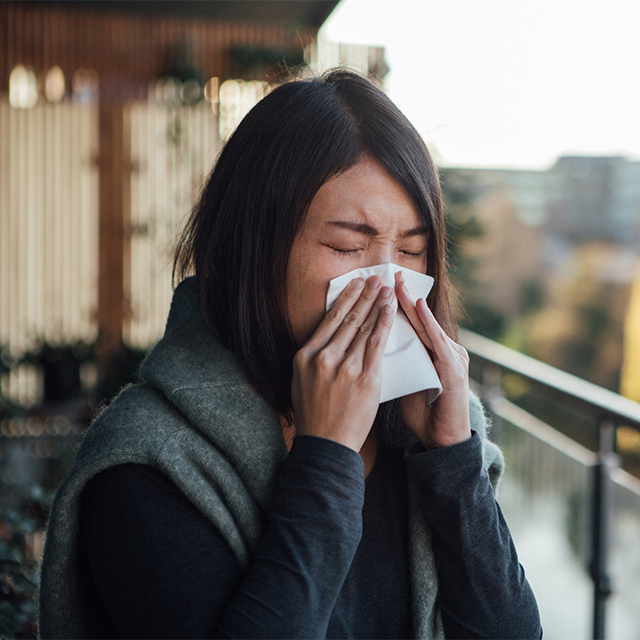What to know about symptoms, timing and hormone replacement therapy.
The term “perimenopause” has been generating a lot of buzz lately, and for good reason. It defines the season before menopause and, until recently, had not been as widely discussed. The truth is, though, that perimenopause can cause some of the same symptoms that menopause is known for — just sooner than you might think.
These symptoms may include weight gain, problems with sleep, “brain fog” or changes in how well you can concentrate and think, an increase in depression and anxiety, and — in some cases — hot flashes. If you’re experiencing symptoms of perimenopause that are disrupting your quality of life, talking to an OB-GYN can help you make sense of what you’re experiencing.
When does perimenopause start?
“It’s quite variable as to when the onset of perimenopause occurs because the age of menopause is quite variable, woman to woman,” said Dr. William Lee, an OB-GYN at Vanderbilt Center for Women’s Health Cool Springs. He pointed out that the average age of menopause in the United States is 51. (You’ve reached menopause when you’ve gone one year without having a menstrual period.) Typically perimenopause begins in your mid-40s, though it can start as early as the late 30s.
How long does perimenopause last?
“In most cases perimenopause lasts between two to four years,” Lee explained, “but it can last for as long as seven or eight years — and in rare instances longer. Not everyone experiences symptoms for the full duration, however.”
What are common symptoms of perimenopause?
“Early perimenopause is marked by some subtle changes that many women may not even recognize as being perimenopause.”
Symptoms vary person to person and can vary depending on the stage of perimenopause. Lee outlined two stages: early and late.
“Early perimenopause is marked by some subtle changes that many women may not even recognize as being perimenopause,” he said. “And those typically are night sweats, sleep changes or disturbances, increases in anxiety over baseline and mood swings.” However, he added that one of the most common symptoms is weight gain around the abdomen.
“Late perimenopause is marked generally by menstrual changes, meaning a change in the menstrual cycle from 28 to 30 days to longer cycles, shorter cycles or irregular cycles,” Lee said. “And a lot of women in perimenopause experience heavier periods.”
Vasomotor symptoms, commonly called “hot flashes,” can also start in late perimenopause. People also report brain fog, an umbrella term for cognitive changes such as experiencing general forgetfulness, difficulty with coming up with the right word, or paying attention.
What are the best treatments for menopause and perimenopause?
Hormone replacement therapy is the gold standard in treatment if you’re experiencing symptoms that are affecting your quality of life in menopause.
Progesterone replacement therapy helps ease many of the symptoms in perimenopause, including sleep disturbances, brain fog, mood changes and even menstrual changes. “If patients experience vasomotor symptoms,” Lee said, “then estrogen can be added to help those as well.”
Estradiol (a type of estrogen) declines in late perimenopause, and your ovaries eventually no longer produce this hormone at menopause and beyond. This decline in estrogen can bring on the common menopausal symptoms.
“If a woman chooses to start estrogen therapy in menopause and has a uterus, she has to take a progestin or have a progesterone-releasing IUD,” Lee explained. “If a woman doesn’t have a uterus, she doesn’t have to have a progestin along with estrogen.”
In addition to easing perimenopause symptoms in the short term, hormone replacement therapy has long-term health benefits. “It is a good treatment for slowing bone loss, which occurs at a rapid rate around the time of menopause,” Lee said. “It has also been shown to reduce the risk of coronary artery disease, and it decreases insulin resistance, helping to reduce the risk of Type 2 diabetes.”
Is hormone replacement therapy safe?
“The bottom line is you should not hesitate to bring up signs or symptoms if you feel like they may be perimenopause- or menopause-related.”
A major study from 2002 reported that hormone replacement therapy increased the risk of stroke, blood clots and breast cancer. However, the study had some flaws, and researchers have determined that the evidence did not show an increased risk of breast cancer.
“In fact, women in the study who took just estrogen have been shown to have a decreased risk in breast cancer if taken long enough,” Lee said. “But what happened was the majority of women in this country stopped their hormone therapy when they heard about this study. The other problem was that many OB-GYNs and primary care providers quit prescribing it.”
Now that the flaws with the study have largely come to light, clinicians are once again encouraging people in menopause to try hormone replacement therapy if they’re experiencing troubling symptoms and if they are a candidate for it. However, some people may have contraindications – medical reasons to not use this therapy.
“Contraindications to estrogen therapy are a history of stroke, blood clots, heart attack, breast cancer, unexplained vaginal bleeding and, in some cases, liver disease,” Lee explained.
However, even in some of these cases, your doctor may be able to find a solution that allows you to safely take a specific type of hormone replacement therapy. Or your provider may offer alternatives. For example, the medication fezolinetant (under the brand name Veozah) helps treat moderate to severe menopausal hot flashes.
What is the importance of making lifestyle changes?
Lifestyle changes can also help ease perimenopause symptoms. Exercise is especially important. “If someone is sedentary,” Lee said, “just walking, even 30 minutes four days a week, is going to help their long-term health.” He also said resistance training two or three times per week is crucial for helping to build and preserve lean muscle mass, something that starts to decline with perimenopause.
Dietary changes also help. Perimenopause can cause a person to become more insulin resistant, which can lead to weight gain. Reducing intake of refined carbohydrates (such as bread, pasta, white rice and ultra-processed foods), while increasing intake of fiber (including fruits, vegetables and whole grains) can help.
Lee emphasized the need for boosting protein intake; protein helps preserve lean muscle mass. “It’s healthier to ingest more protein than carbs for most patients.”
When should you see a doctor?
“The bottom line is you should not hesitate to bring up signs or symptoms if you feel like they may be perimenopause- or menopause-related,” Lee said. “And here’s the key: If the clinician’s unwilling to listen or help, you need to find somebody who will.”

Need help?
Vanderbilt Women’s Health provides care for women at all stages of their lives at locations across Middle Tennessee. Call 615-343-5700 for an appointment with one of our expert OB-GYNs, midwives or nurse practitioners.




